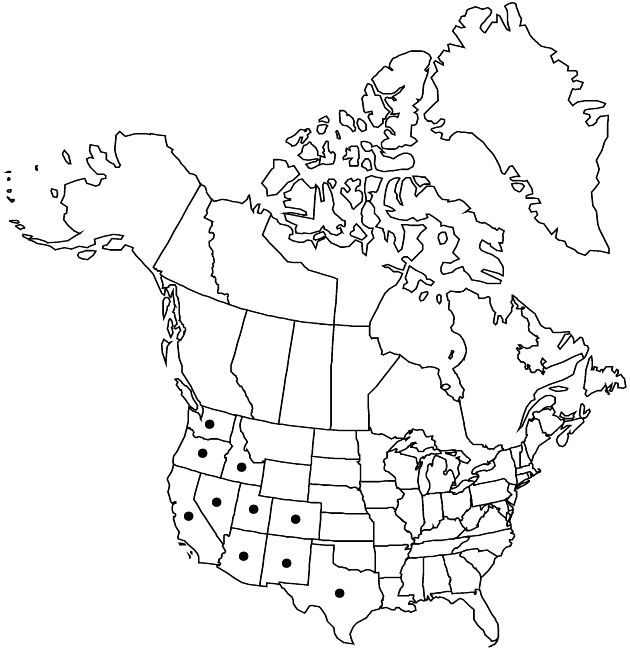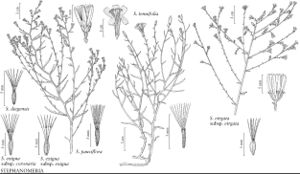Stephanomeria exigua subsp. exigua
Heads in paniculiform arrays. Peduncles 10–40 mm, glabrous or sparsely glandular. Calyculi of appressed bractlets. Involucres glabrous or sparsely glandular. Florets 5–8. Cypselae 2.6–3.2 mm; pappi of 5–13 white to light tan bristles (widened bases persistent, bases connate in groups of 2–4, if bristles 5, breaking off completely, bristles plumose on distal 50%). 2n = 16.
Phenology: Flowering May–Jul.
Habitat: Sandy soils, deserts, sagebrush, creosote bush, pinyon-juniper woodlands, Joshua Tree communities
Elevation: 100–2000 m
Distribution

Ariz., Calif., Colo., Idaho, Nev., N.Mex., Oreg., Tex., Utah, Wash., Mexico (Baja California)
Discussion
Subspecies exigua is morphologically variable. Plants with pappi of 5 bristles (often called Stephanomeria pentachaeta) are found throughout its distribution; they are fully interfertile with plants having more bristles. Stephanomeria schottii A. Gray from southern Yuma County, Arizona, described as having a pappus of 4–6 bristles, “sparsely short-plumose toward the summit,” appears to be a synonym of subsp. exigua.
Selected References
None.
Lower Taxa
"fine" is not a number.
